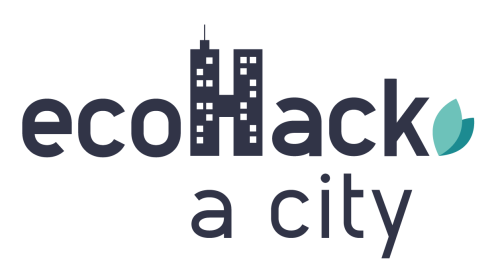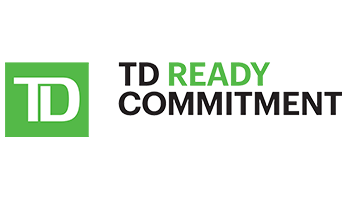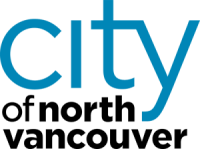CITY AND DISTRICT OF NORTH VANCOUVER, BRITISH COLUMBIA – September 29, 2021
Walking the streets of any city, it is commonplace to be surrounded by cranes, scaffolding and other construction tools. Construction and demolition are a part of the everyday life of urban centres, but does the waste production that comes along with it need to be?
PUBLIC PANEL EVENT OUTCOMES
On September 29th, 2021, zero waste stakeholders and a deconstruction specialist gathered around the same table to question the waste produced in the existing construction model and discuss how to bring more circularity to the sector.
Metro Vancouver is responsible for regional waste management planning and the operation of solid waste facilities in the region and Adriana Velázquez, Project Engineer in Zero Waste Implementation at Metro Vancouver explained that in 2019, about 1/3 of the 1.3 million tonnes per year of waste generated in the region came from the construction and demolition (C&D) sector and about 60% of that waste is wood products that can partly be rescued at earlier stages in the demolition process. In the past decade, Metro Vancouver implemented programs and bylaws to improve this situation and help divert waste from landfills. One of the key initiatives is the 2020 Construction and Demolition Waste Recycling Toolkit for builders and contractors.
As needed as these measures are, a real shift is required in the sector regarding the end-of-life of our buildings. Adam Corneil, founder of Unbuilders and Heritage Lumber, started that shift with a unique business model that deconstructs houses to salvage as much material as possible. They partner with charities and donate the material to them. With a focus on wood, old growth lumber in particular, Heritage Lumber acquires the material to sell for processing into new products. With deconstruction projects, about 95% of materials are diverted, keeping them out of landfills and returning them to the supply chain through reclaiming, or at least diverting them to recycling streams.
Our final panelists, Cinci Csere and Chris Arkell, founders of Sea to Sky Removal, know everything there is to know about recycling on construction sites as the service they provide is to sort piles of construction waste by separating recyclables, reusable building materials (that will be donated to non-profit organisations) and the general garbage to fight the linear, single-stream waste disposal that currently exists in the construction sector. One of the challenges they mention when it comes to recycling construction materials is the recycling bans that can change without notice. For them, like for the other panelists, policy is key in this transition. A major mind shift is needed within the construction sector, but within the general public as well: “It is important to think of waste, not as a problem, but as an actual resource waiting to be harvested.”
POTENTIAL SOLUTIONS
For this Design Thinking training, the District and City of North Vancouver challenged the two groups of participants to reflect on the lack of market for the reuse of construction, demolition, and deconstruction materials. After doing a deep dive on the question, education of both stakeholders in the industry and the general public, as well as infrastructure, were determined to be the priority. It will take several forms, including pilot projects, collaboration, and partnerships.
To see the construction sector transition to a circular model when it comes to managing its waste, effort will need to be put into education. Emphasis on material salvaging and reuse needs to be made in institutions training stakeholders in the sector, and awareness of this issue is needed at all levels of education, even at a young age. The general public also needs to be made aware that the construction and demolition sector is a major contributor to landfills in order to encourage behavioural change, similar to how behaviours changed when the dangers of single-use plastics were brought to light.
If institutions have a role to play, collaborations and partnerships between different groups working on this issue are a significant support to sharing knowledge and bringing about innovation. Creating networking points to consolidate this knowledge will help stakeholders who are considering zero-waste construction sites build the capacity they need to move forward.
Knowledge also comes from research and data collection through various types of pilot projects. With solid data, policy decisions and advocacy for different alternatives can be made. It can inform existing markets and those which need to be developed, help build confidence in reusing materials coming from deconstruction, and help develop standards and regulations to promote innovation, partnerships, grants, procurement, as well as expand local infrastructure.
Local infrastructure, physical space for the salvaged material, is also a high priority. Once the shift to the circular model in the construction sector takes off, space will be needed to receive the material from a deconstruction site and process it to be reused, as well as for retail and wholesale after the material has been processed. The former should be an area of focus to support building contractors as they make the transition to a zero-waste sector.
ABOUT THE ECOHACK-A-CITY SERIES
Municipalities are in a unique position to make real strides in the fight for a more sustainable future. The EcoHack-a-city initiative is designed to strengthen the ties among stakeholders who can support this ecological transition!
To discover the next themes addressed in the EcoHack-a-city public panel events, click here.
To participate in an EcoHack-a-city training, click here.
Contact us
Earth Day Canada
5818, boulevard Saint-Laurent
Montréal (Québec) H2T 1T3 Canada
Phone : (514) 728-0116
Toll free : 1 800 424-8758
Fax : (514) 303-0248
Email: hello@earthday.ca
2025 © Earth Day Canada. All rights reserved.
Privacy policy · Terms of use · Trademark







